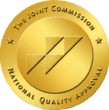Dual diagnosis treatment insurance coverage refers to the extent to which health insurance policies cover the cost of treatment for individuals with co-occurring substance abuse or addiction and mental health disorders. Health insurance plans often pay part, if not all, of the expenses of treating co-occurring disorders and view dual diagnosis rehabilitation coverage as essential.
Under the Affordable Care Act (ACA), all health insurance plans in the United States are required to cover mental health and substance use disorder services as essential health benefits.2 This means that most insurance plans will cover at least some form of dual diagnosis treatment, including outpatient or inpatient care, counseling, and medication management.
However, the specific coverage and benefits for dual diagnosis treatment will vary depending on the insurance policy and your unique needs. For example, some insurance plans may limit the number of days or sessions covered, require pre-authorization, or have different cost-sharing requirements for mental health and substance abuse treatment than other medical services.


























